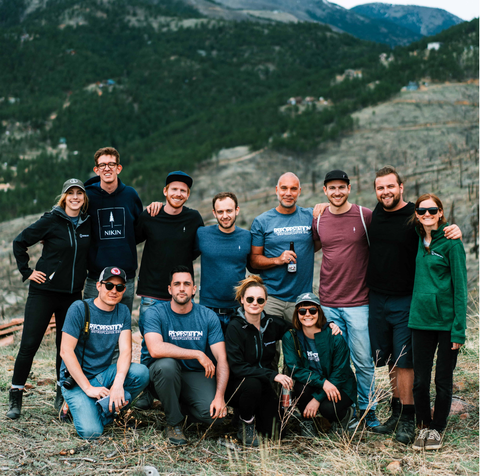NGOs make the headlines. Time and again, they find themselves in the spotlight when they get involved where no one else can or wants to. Whether it is the conservation of natural areas, humanitarian missions in war and crisis zones or political awareness and education, NGOs are an important part of civil society. But what exactly is an NGO?
NGOs make the headlines. Time and again, they find themselves in the spotlight when they get involved where no one else can or wants to. Whether it is the conservation of natural areas, humanitarian missions in war and crisis zones or political awareness and education, NGOs are an important part of civil society. But what exactly is an NGO?

The abbreviation "NGO" stands for "non-governmental organization" - also known as NRO or "non-governmental organization". An NGO must fulfill various criteria in order to live up to its name. It must be privately organized and independent. An organization that claims to be independent but is ultimately sponsored by interest groups cannot claim to be independent. Just as important as independence from economic and/or political stakeholders is a non-profit orientation. In order to be allowed to call itself an NGO, an organization must therefore renounce any claim to profit and may not distribute any profits to its members. This is intended to guarantee independence.
What do NGOs do?
Non-governmental organizations are active in many areas of society and social life. They are committed to the rights of groups, especially the rights and protection of weak and disadvantaged people - for example, there are numerous NGOs that are involved in child protection or women's rights. But NGOs are also committed to helping people with disabilities, victims of the justice system and senior citizens - and currently, of course, there is a strong focus on victims of conflict and refugees. The list could be extended considerably.
In addition to protecting and representing individual groups of people, NGOs can also be active in the social and political sphere, pointing out and combating abuses of power and the bending of the law.
NGOs are also important in animal welfare and nature conservation. As independent advocates, they stand up for fellow creatures that have no voice and strive to protect the beauty and riches of the planet.
How do non-governmental organizations finance themselves?
As NGOs are not allowed to distribute profits, many of them rely on donations. Another source of income is membership fees, which are paid where an NGO is organized as a non-profit association. As non-governmental organizations in particular have a high demand for independence and transparency, effective public relations work that is also compatible with the ethics of the organization and the absolutely correct use of the funds raised is of the utmost importance - the credibility of an NGO stands or falls on this.
However, this does not mean that the members or employees of an NGO are not paid. Particularly where complex work is carried out, where specialists and experts are needed, NGOs are certainly authorized to pay their employees and freelancers well according to the usual national standards. On the other hand, there are volunteer members or employees who work free of charge or in return for reimbursement of expenses.
Revenue from successful projects
Financing through the products from their own projects is also perfectly legitimate for an NGO. Anyone who supports a vocational training project may, for example, sell the handicraft products that are the result of the project work - in order to generate income for further activities and to bring tangible proof of success to the market. In any case, it is important that the money generated is returned and used to finance further activities of the NGO.
At NIKIN, we want to help ensure that the work of NGOs that are committed to forest and nature conservation reaches the consumer. And that each and every one of you has the opportunity to make a direct and uncomplicated contribution to preserving nature. We have a special love and affinity for the forest and its inhabitants. Trees clean the air we breathe and the water we drink. Forests are the most important reserves for biodiversity. That's why we work together with One Tree Planted and BOS.
One Tree Planted
Since 2014, our partner One Tree Planted has been reforesting areas around the world that have been deforested by logging, forest fires and other environmental disasters. The mission: one dollar per tree. OTP's tree planters are active in North and South America, Africa and Asia, planting trees that are suitable for the respective region and can thrive there. We at NIKIN ensure that they do not run out of money for reforestation. A tree is planted with every product purchased from us!
BOS
BOS Switzerland has been campaigning since the 1990s for the protection of the last orangutans on Borneo - and the conservation of the tropical forests in which they live. In addition to rescuing and rehabilitating the animals, one focus of its activities is community work - because species protection and nature conservation can only be implemented in the long term if people understand why the animals' habitat is also important to them.






















